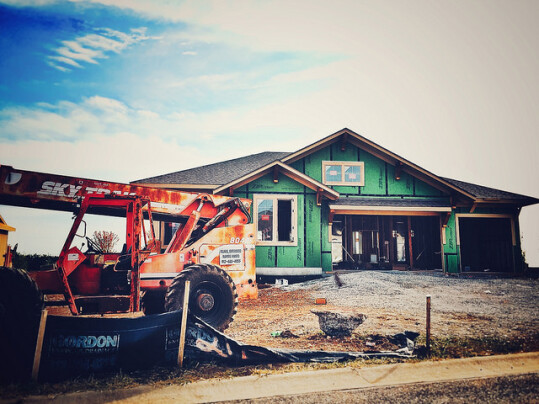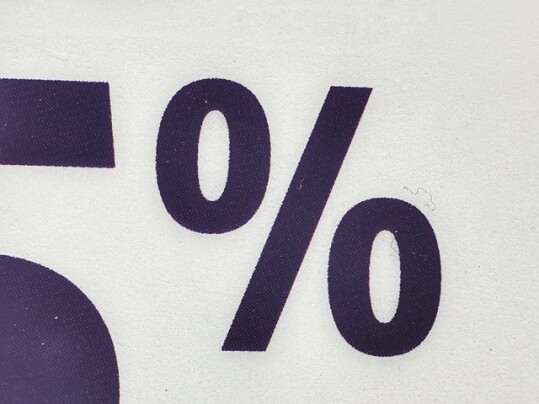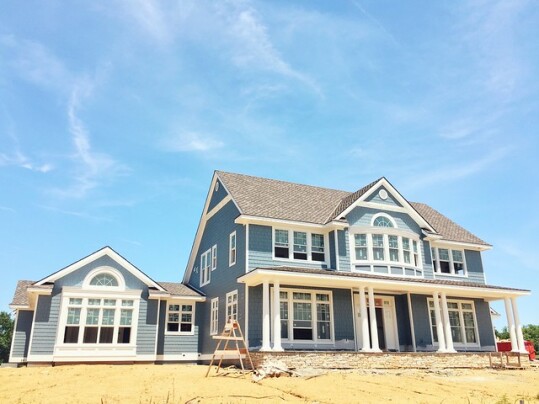Home builders are in the business of knowing what buyers want and when. Which is why the National Association of Home Builders’ monthly Housing Market Index is a closely watched indicator of market health. The index is based on a survey where builders’ responses are collected and scored on a scale where any number above 50 indicates more builders view conditions as good than poor. In December, the overall index fell for the 12th consecutive month. But while builders are clearly feeling the effects of high inflation and elevated mortgage rates, there was some good news in this month’s survey. For one, December’s decline was the smallest of the past six months. Robert Dietz, NAHB’s chief economist, says that could mean things begin to turn around soon. “The silver lining in this HMI report is that it is the smallest drop in the index in the past six months, indicating that we are possibly nearing the bottom of the cycle for builder sentiment,” Dietz said. Additionally, the survey component measuring builders’ expectations for the next six months registered a four point increase. That’s a good sign builders see brighter days ahead. (source)
Archive for December 2022
Builders Becoming More Optimistic About Future
How Stable Is Today’s Housing Market?
There are a lot of ways to measure the health of the housing market. You can find stats and trends detailing everything from home sales to housing starts. Ultimately, though, potential buyers just want to know that the home they purchase won’t hurt them financially or leave them stuck with a house they can’t afford to leave. That’s why this year’s housing market has caused some anxiety. The market has slowed after a period of rising home values and elevated demand. The change has caused hesitation among Americans who may have been thinking of buying or selling a home soon. But according to one recent study, the market remains stable. In fact, the study found just 3.4 percent of homeowners who purchased a home in the past two years would be underwater on their mortgage if home values fell 4 percent in 2023. That’s significant because recent buyers haven’t had much of an opportunity to build equity, unlike homeowners who purchased their home many years ago. (source)
Do Snowy States Have Higher Home Values?
Winter weather has already arrived in much of the country. That means snow, ice, and cold. But though that may not sound inviting to a lot of people, it doesn’t mean living in a colder climate is necessarily less expensive than it is to live where the weather is milder. In fact, according to one newly released study, median home values in the 14 states that got the most snow in December 2021 are, on average, nearly, $57,000 more expensive than median values in states that reported no snow. That may come as a surprise, especially when median home values in Hawaii are more than twice as high as they are in Alaska. But the study shows there’s a wide range of home values from state-to-state, no matter the climate. For example, Mississippi is a warm-weather state with a median home value of $145,600, while Washington, where it’s colder, has a median value of $485,700. (source)
Mortgage Rates Remain Near Low For Month
According to the Mortgage Bankers Association’s Weekly Applications Survey, average mortgage rates were mostly flat last week from one week earlier. Rates were virtually unchanged week-over-week for 30-year fixed rate loans with conforming loan balances, loans backed by the Federal Housing Administration, 15-year fixed-rate loans, and 5/1 ARMs. Jumbo loans saw a slight increase. Joel Kan, MBA’s vice president and deputy chief economist, says rates remain near their lowest level in a month. “The 30-year fixed-rate … is still close to the lowest rate in a month,” Kan said. “The ongoing moderation in home-price growth, along with further declines in mortgage rates, may encourage more buyers to return to the market in the coming months.” For now, demand for loans was up 3.2 percent overall from one week earlier, with home buyers pushing purchase loans 4 percent higher than the week before. The MBA’s weekly survey has been conducted since 1990 and covers 75 percent of all retail residential mortgage applications. (source)
The Top Incentives Offered To New Home Buyers
Part of the home buying process is deciding whether you want to buy a new home or an existing home. They both have advantages. Previously owned homes, for example, are generally more affordable and typically located in more established neighborhoods. New homes, on the other hand, have the benefit of being brand new. And, these days, they’re increasingly being offered with added incentives to encourage potential buyers. In fact, according to a recently released survey from the National Association of Home Builders, 59 percent of home builders offered incentives in November – that’s up from 43 percent in July. So what are the top incentives builders are offering buyers? Price cuts top the list, with 36 percent of builders reporting having reduced their prices by an average of 6 percent, according to the survey. Other incentives include paying closing costs or fees, free or discounted upgrades, and mortgage rate buy-downs. (source)
Getting A Mortgage Got Easier In November
The Mortgage Bankers Association’s monthly Mortgage Credit Availability Index offers prospective home buyers a gauge of how easy or difficult it currently is to get approved for a loan. The index measures whether lending standards are tightening or loosening. When standards tighten, it means borrowers need to have a more secure financial situation than when standards loosen. In November, the index found mortgage credit was more available than it was the month before. That means borrowers should have an easier time getting a loan. Joel Kan says it was the index’s first improvement in months. “Credit availability increased slightly in November, the first increase in nine months as lenders continued to navigate a challenging environment brought on by higher rates and a much slower housing market,” Kan said. According to Kan, jumbo loans saw big gains, but most of the improvement can be credited to an increase in ARM loan programs offered by lenders. (source)
Where Do You Plan To Live In Retirement?
You may be someone who envisions moving somewhere beautiful when you retire. After all, spending your retirement soaking up the sun somewhere near the water doesn’t sound too bad. But while many of us may fantasize about moving away in retirement, the reality is the majority of us are happy where we are. According to one newly released survey, 70 percent of Gen X and Baby Boomers say they plan to retire in the home they currently own. The reasons are varied, including everything from having a low mortgage payment to having remodeled the house to fit their needs. Whatever their reasons, many Americans don’t see themselves selling their homes and moving away. So many Americans, in fact, that it may be affecting the housing market. How so? Well, with more of us planning on staying in our current home during retirement, there are fewer existing homes on the market available to home buyers. (source)







